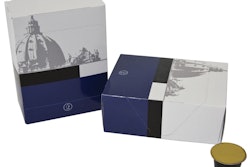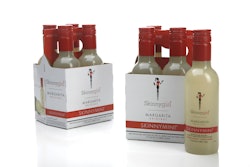The No. 1 cause for North American food recalls in 2011 wasn't a foodborne illness, it was unlabeled or mislabeled ingredients. But the problem is just as serious, because in the United States, approximately roughly 2% of U.S. adults and 5% of U.S. children have at least one food allergy, and reactions to an undeclared allergen can be fatal.
Cartons, bags, labels and misprints are subject to human error, but such instances of mixed labeling or mislabeling (considered "misbranding" by regulators) can be hard to spot. Not only do they look alike, but today’s high- speed packaging lines "make it difficult to see accidental package changes during a run," Debra Krug-Reyes, food safety and quality auditing principal at ConAgra Foods, Naperville, IL, said to conference attendees at the 2012 Pack Expo in Chicago.
She and others on a panel discussion cited examples of recalls such as veggie burger cartons were accidentally switched, and where a nutrition panel from the wrong product was applied to tartar sauce packages.
"Controls need to be in place at the packaging manufacturer and the food processor to prevent human errors and mistakes," she said, stressing that such mistakes should be mitigated or eliminated within the framework of a Hazard Analysis Critical Control Points or HACCP program, or a comparable risk assessment program.
This applies to allergens as well as all food safety hazards, and is the accepted and near-universally required method for systematically addressing biological, chemical and physical hazards through prevention (vs. finished product inspection.)
Not only must food processors work with their packaging suppliers to mitigate risks. Companies going the proverbial extra mile to prevent mislabeling and related hazards "should communicate that to your customers so they can look for the same things," added Suzanne Matuszewski, manager for global sustainability and regulatory compliance with Graham Packaging, York, PA.
Both Krug-Reyes and Matuszewski Board are on the board of directors of the
Food Safety Alliance for Packaging, or FSAP, a technical committee of Institute of Packaging Professionals. More information is available from the organization as well as Packaging World's
2012 Food Safety Playbook, a free, 81-page PDF guide to food safety compliance for packaging machines, materials and methods.


























